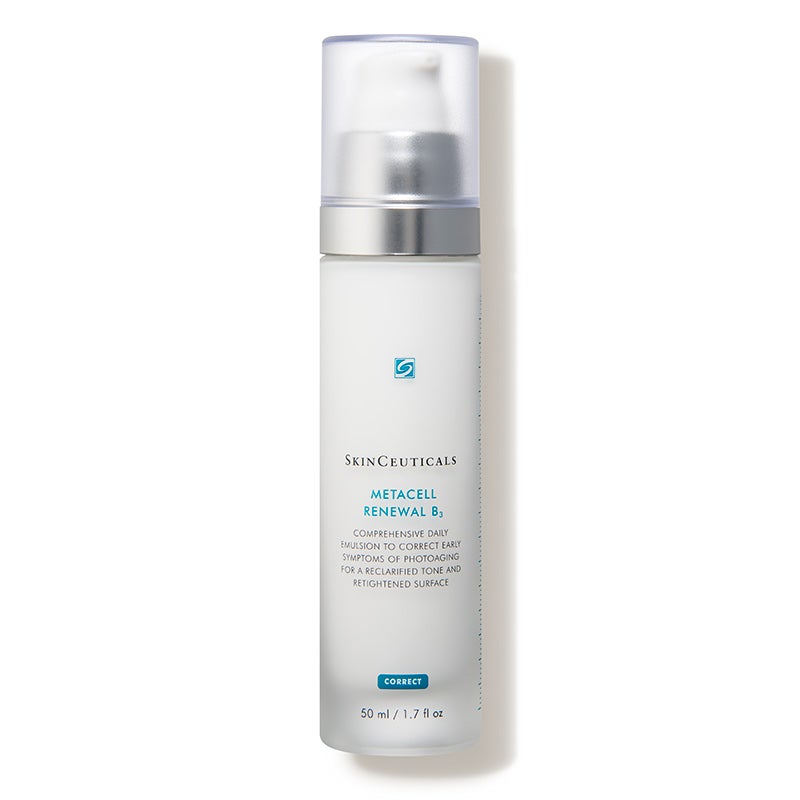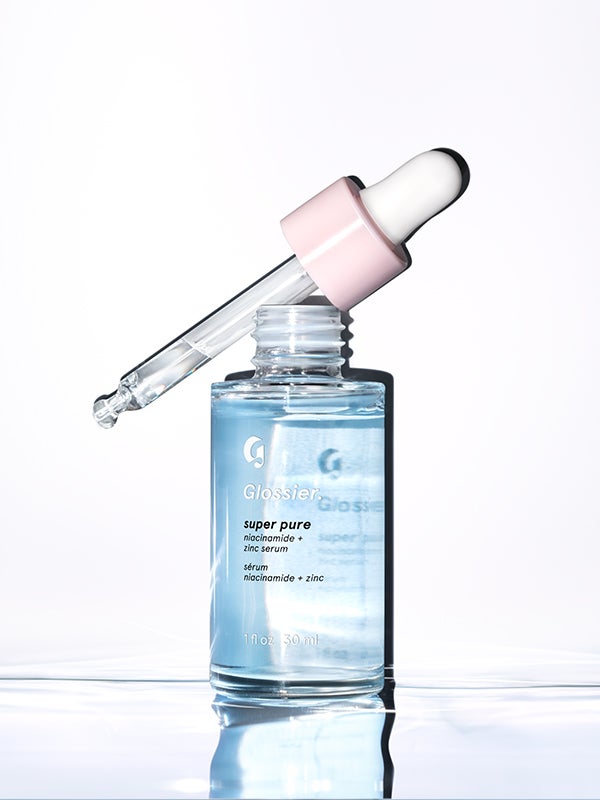This Dermatologist-Approved Ingredient Treats Almost Every Skin Concern
Whether you're a skin-care obsessive or a moisturize-and-go type of person, there are a handful of ingredients your beauty routine probably isn't complete without: vitamin C for protection against environmental aggressors, an alpha-hydroxy acids for chemical exfoliation and fading dark spots, and retinol, best known for its ability to treat acne minimize fine lines. But there's another ingredient you're probably seeing everywhere right now. Niacinamide is a little less ubiquitous in the skin-care aisle than the aforementioned essentials — and a little harder to pronounce — but it's well worth making room for in your bathroom cabinet.
AdvertisementADVERTISEMENT
"Niacinamide is essentially vitamin B3," says Dr. Ewoma Ukeleghe, medical and cosmetic doctor and founder of SKNDOCTOR. "Clinical studies have shown that niacinamide can improve excess sebum production, the appearance of pores and fine lines, and keep the skin's barrier intact." In turn, this prevents water loss from the skin, limiting dryness and irritation, such as redness or itching.
According to consultant dermatologist Dr. Anjali Mahto, niacinamide's oil-balancing properties may also indirectly help with mild acne, but that's not all. "Topical niacinamide has been shown to reduce redness caused by sunlight and is thought to act as an anti-inflammatory agent," Dr. Mahto said in an Instagram post, adding environmental protection to the long list of benefits. (That said, niacinamide is not a replacement for sunscreen — nothing is a replacement for sunscreen — so you'll need to apply sun protection during the day.)
So how should you use niacinamide? Professional facialist Kate Kerr advises that the ingredient, which is usually well-tolerated by sensitive skin types, can be applied at any time in your regimen morning or evening but is most beneficial in leave-on formulas, such as serums or toners. Kerr likes dermatologist-recommended SkinCeuticals Metacell Renewal B3, but The Ordinary Niacinamide 10% + Zinc 1% and Glossier Super Pure Niacinamide + Zinc Serum both have cult-favorite status at much lower price points.
AdvertisementADVERTISEMENT
What's more, Dr. Ewoma says research has shown that applying niacinamide prior to using retinol, which is usually associated with skin sensitivity including peeling and redness, may increase the skin's tolerance — so if your skin is reactive to retinol, it might be worth smoothing on a product with niacinamide first. Dr. Ewoma also notes that niacinamide is a great skin-care ingredient to use before your period. "I personally love to use niacinamide 1-2 weeks before," she says. "It helps prevent any breakouts and to manage the increased sebum production many women tend to experience at this time during their cycle."
Lastly, Dr. Mahto suggests looking at the ingredients list of your chosen product. Ideally, niacinamide should feature as the third or fifth ingredient for best results.
At Refinery29, we’re here to help you navigate this overwhelming world of stuff. All of our market picks are independently selected and curated by the editorial team. If you buy something we link to on our site, Refinery29 may earn commission.
AdvertisementADVERTISEMENT









